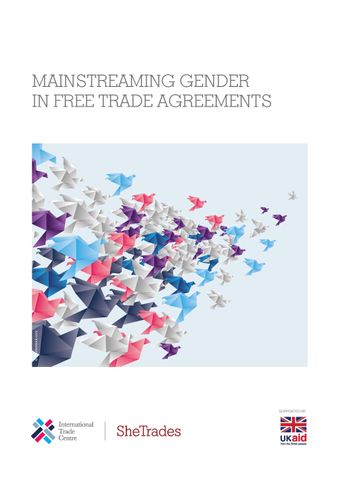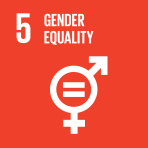Mainstreaming Gender in Free Trade Agreements

This report presents recommendations to boost the participation of women in trade through free trade agreements. Policymakers and trade negotiators will find a new toolkit to gauge gender responsiveness in their agreements. These lessons are based on a research assessment of 73 selected free trade agreements in force among 25 Commonwealth countries, and top-line recommendations and model clauses for countries to adapt. The recommendations include embedding gender provisions in the preamble, leveraging corporate social responsibility, using reservations, waivers and general exceptions, and strengthening monitoring and dispute settlement mechanisms.
© United Nations
Table of Contents
Foreword
Acknowledgements
Acronyms
Executive Summary
Gender in trade agreements: Why and how?
How to measure gender responsiveness?
Getting inspired: Learning from trade agreements
Ten recommendations and model clauses
Appendices
Gender-responsive framework for free trade agreements
Survey for gender-responsive free trade agreements
Examples: Levels of gender responsiveness
Glossary
Endnotes
References
Acknowledgements
Acronyms
Executive Summary
Gender in trade agreements: Why and how?
How to measure gender responsiveness?
Getting inspired: Learning from trade agreements
Ten recommendations and model clauses
Appendices
Gender-responsive framework for free trade agreements
Survey for gender-responsive free trade agreements
Examples: Levels of gender responsiveness
Glossary
Endnotes
References



